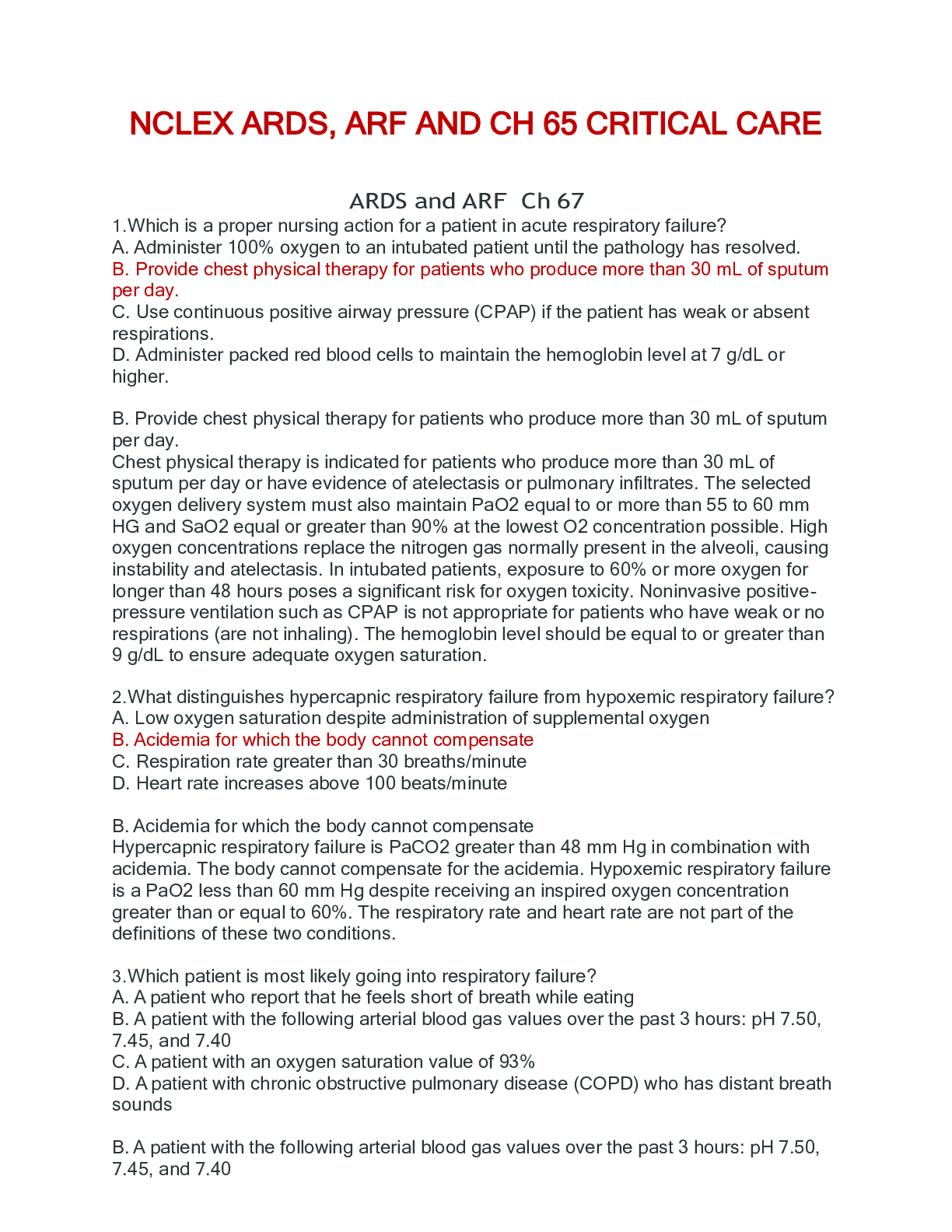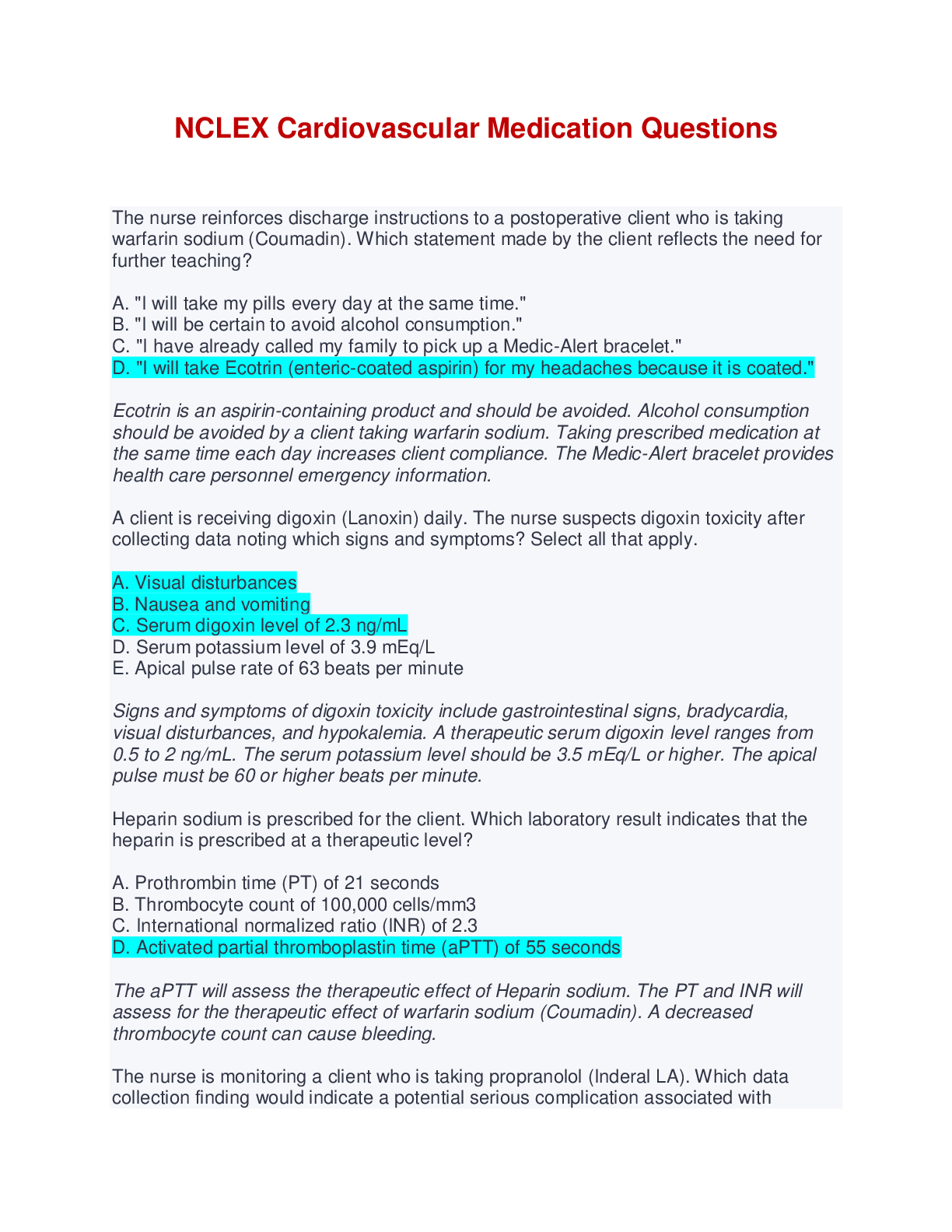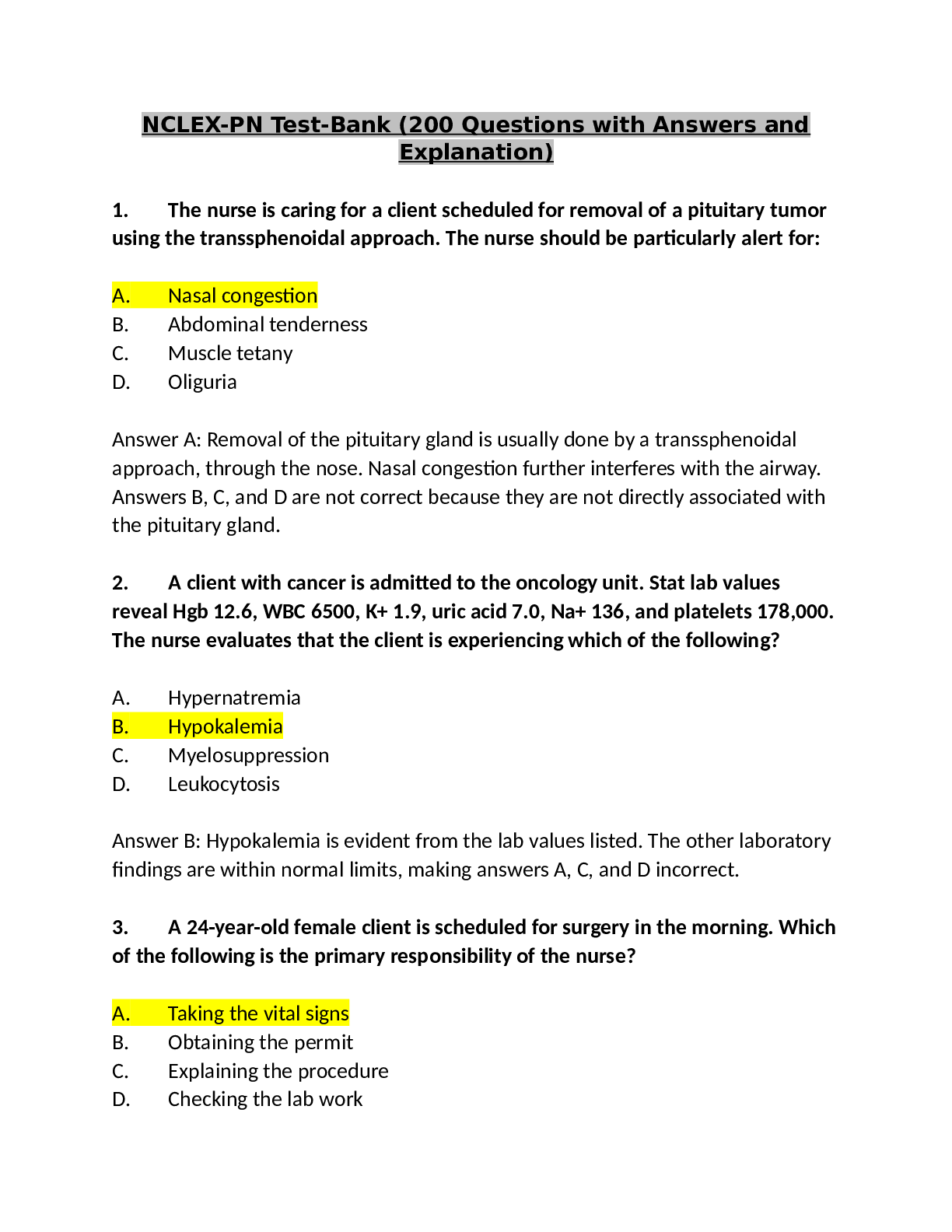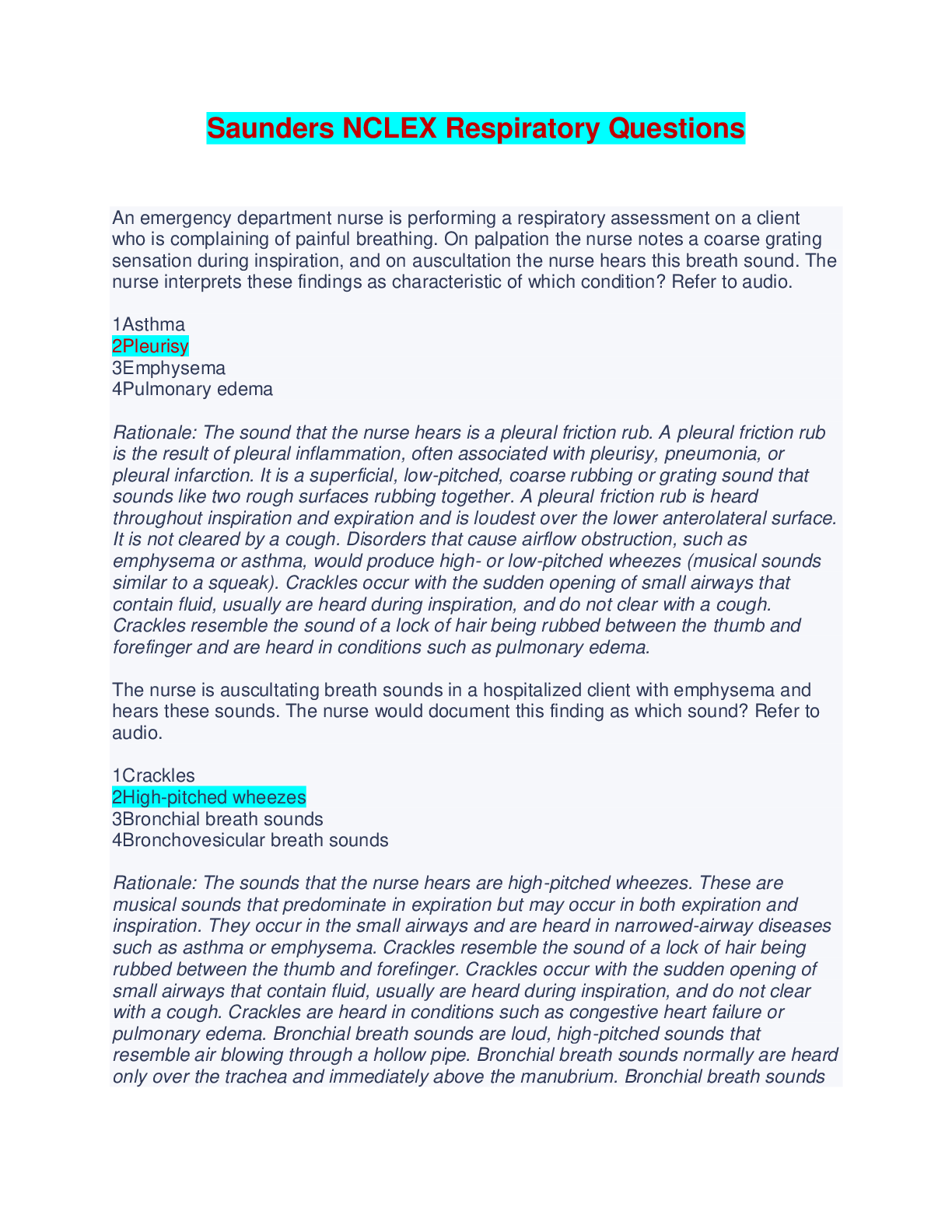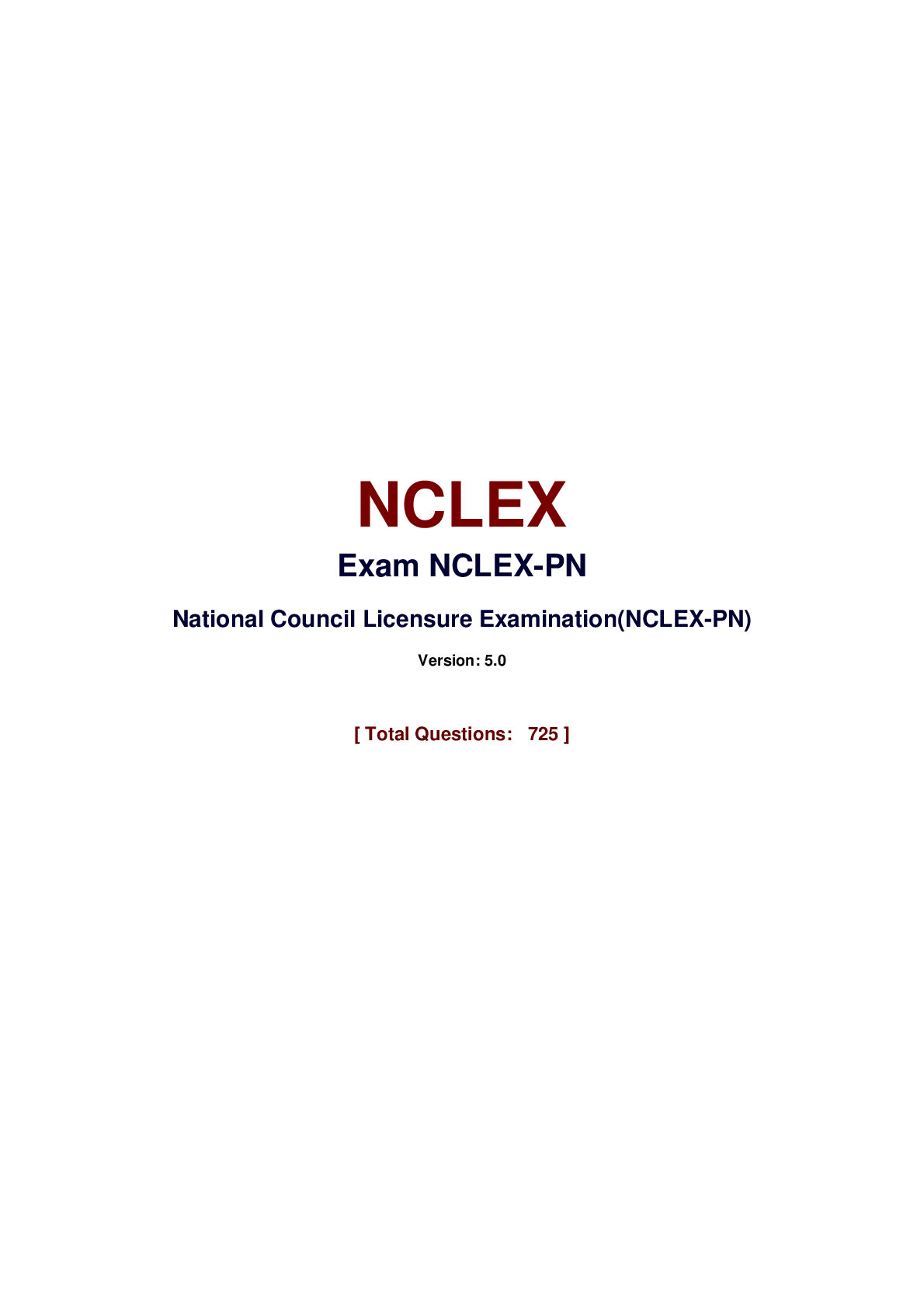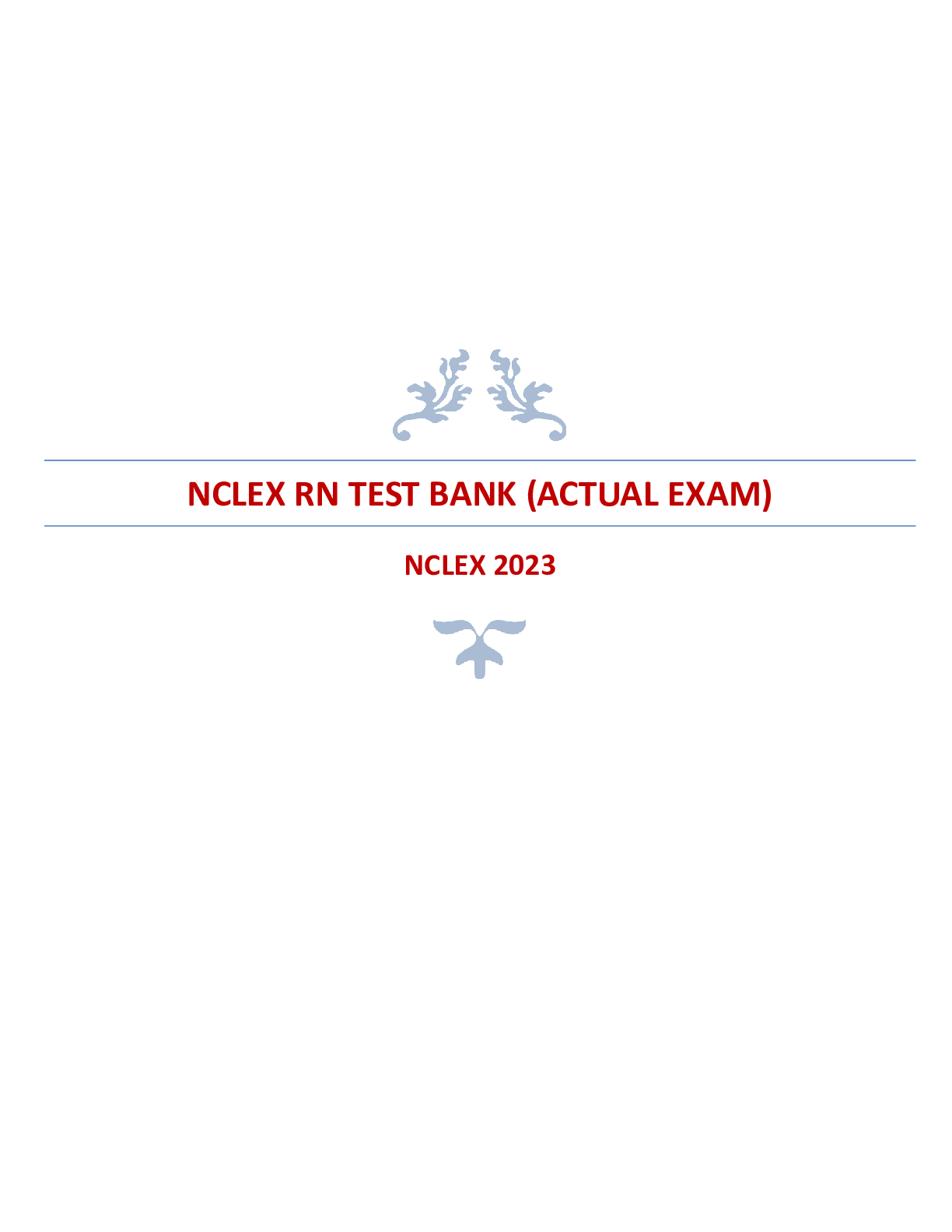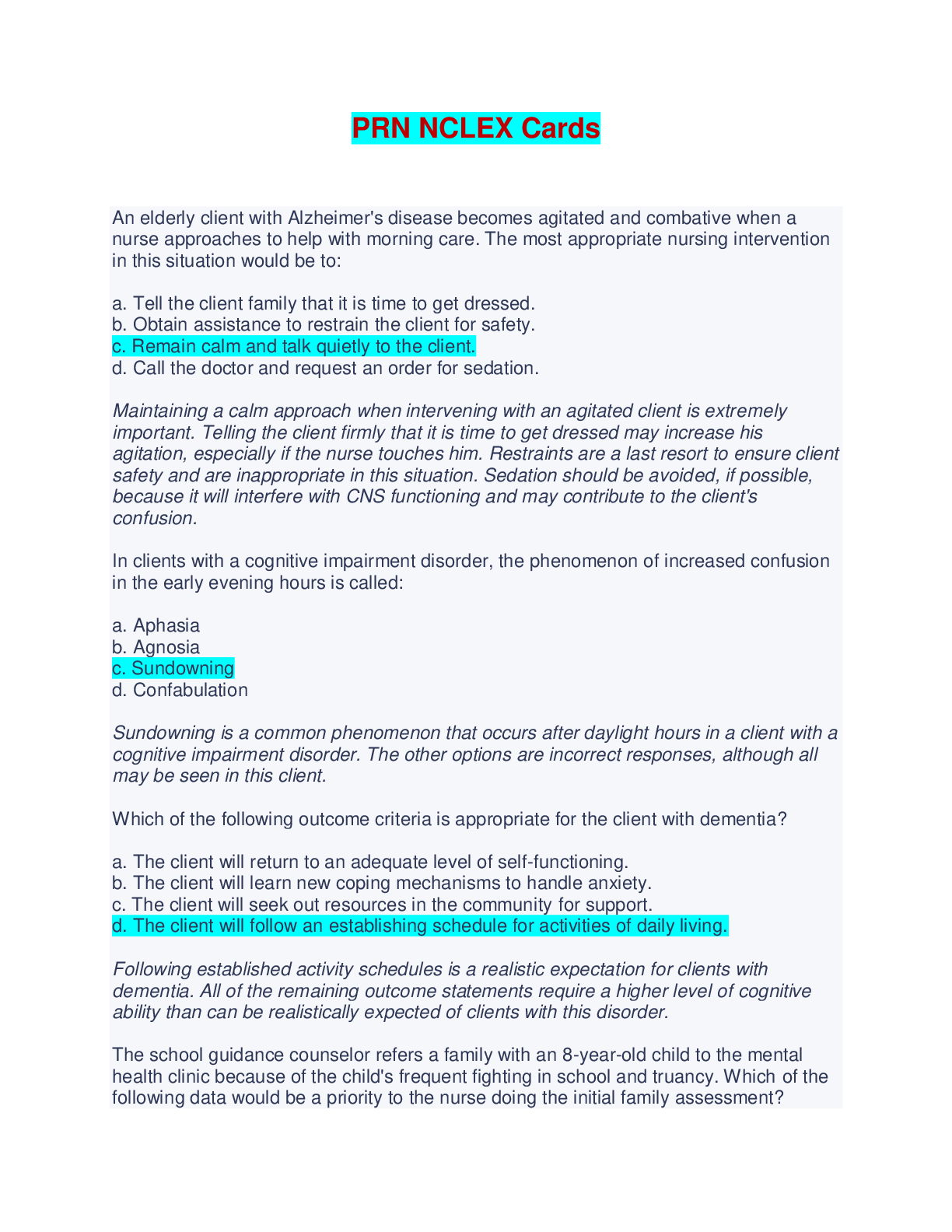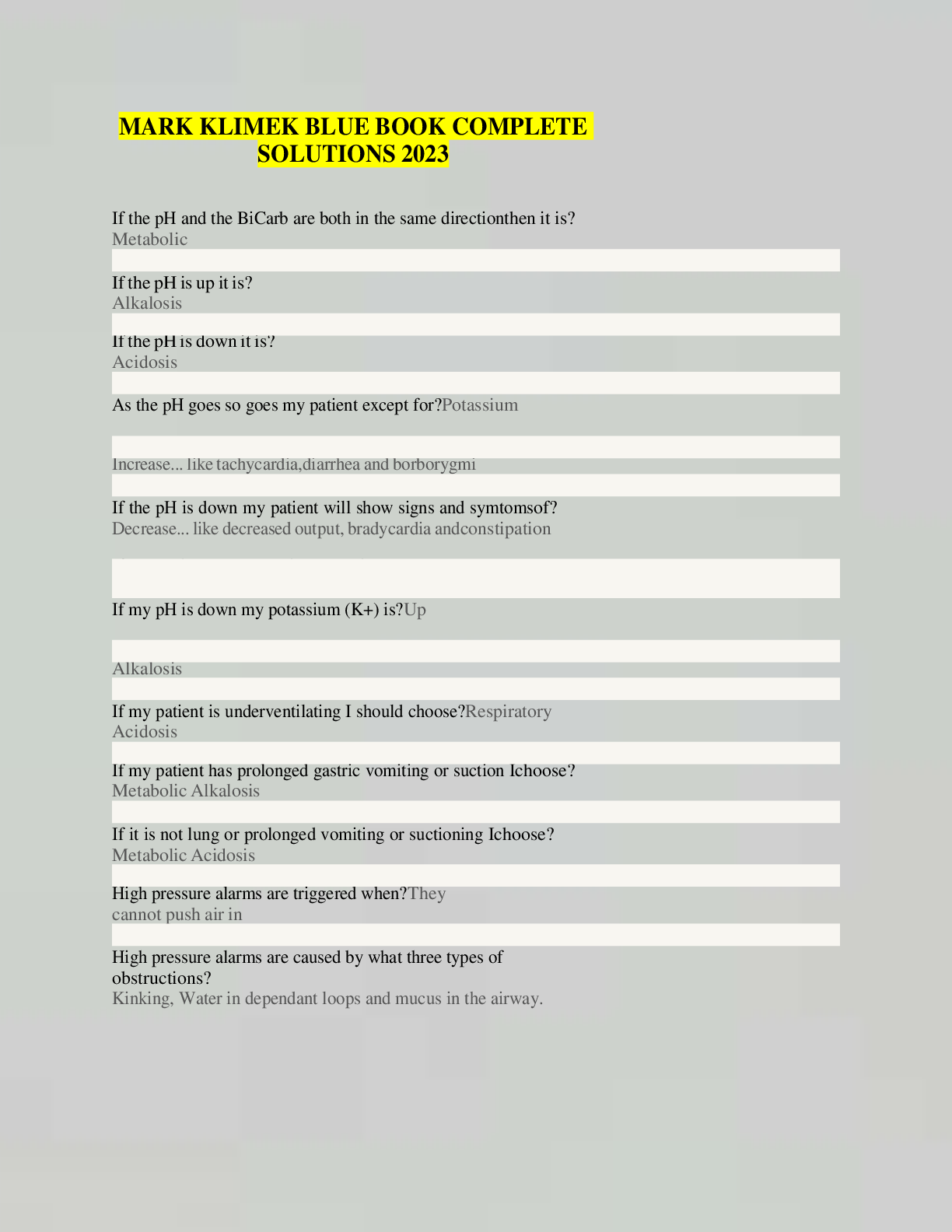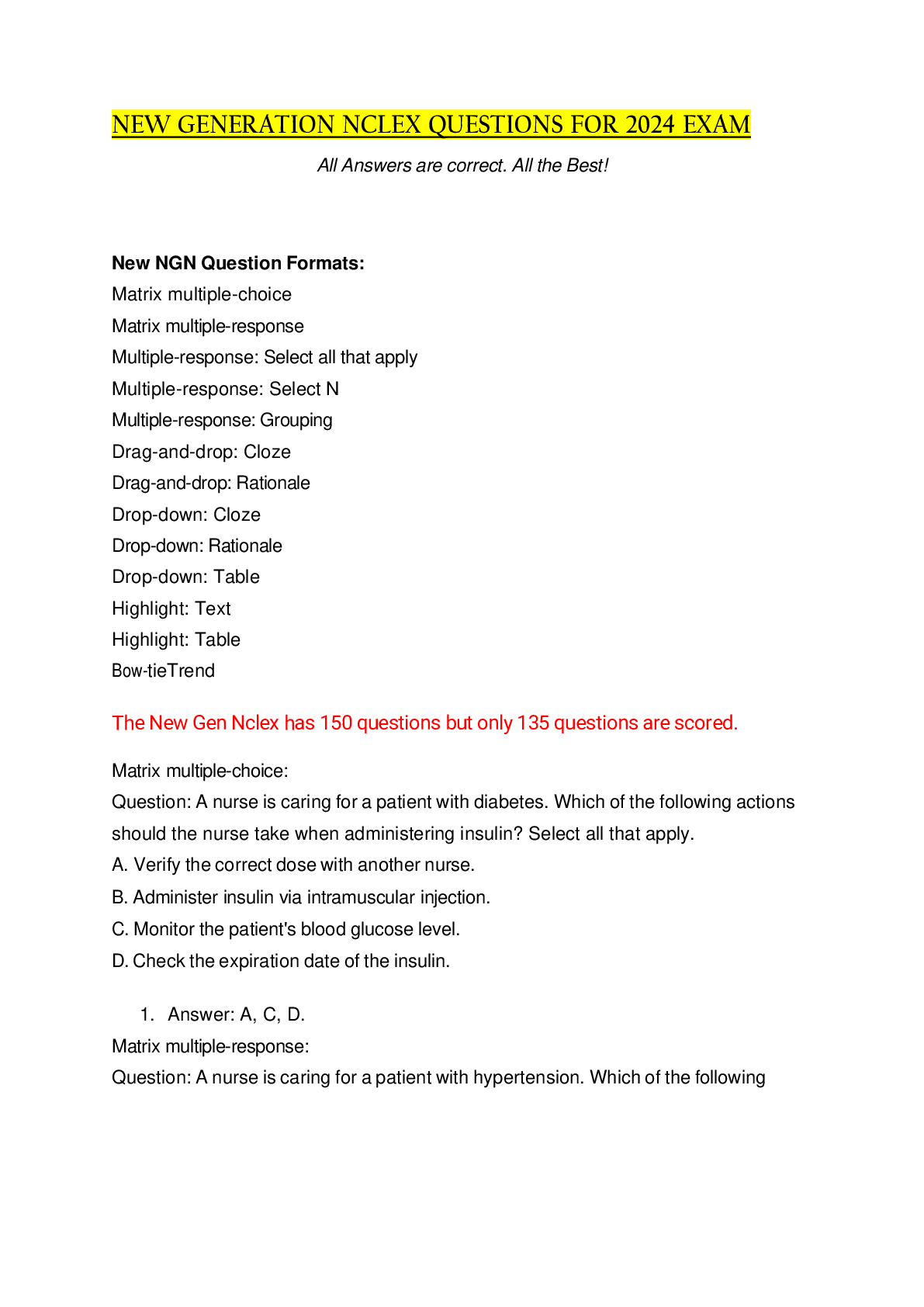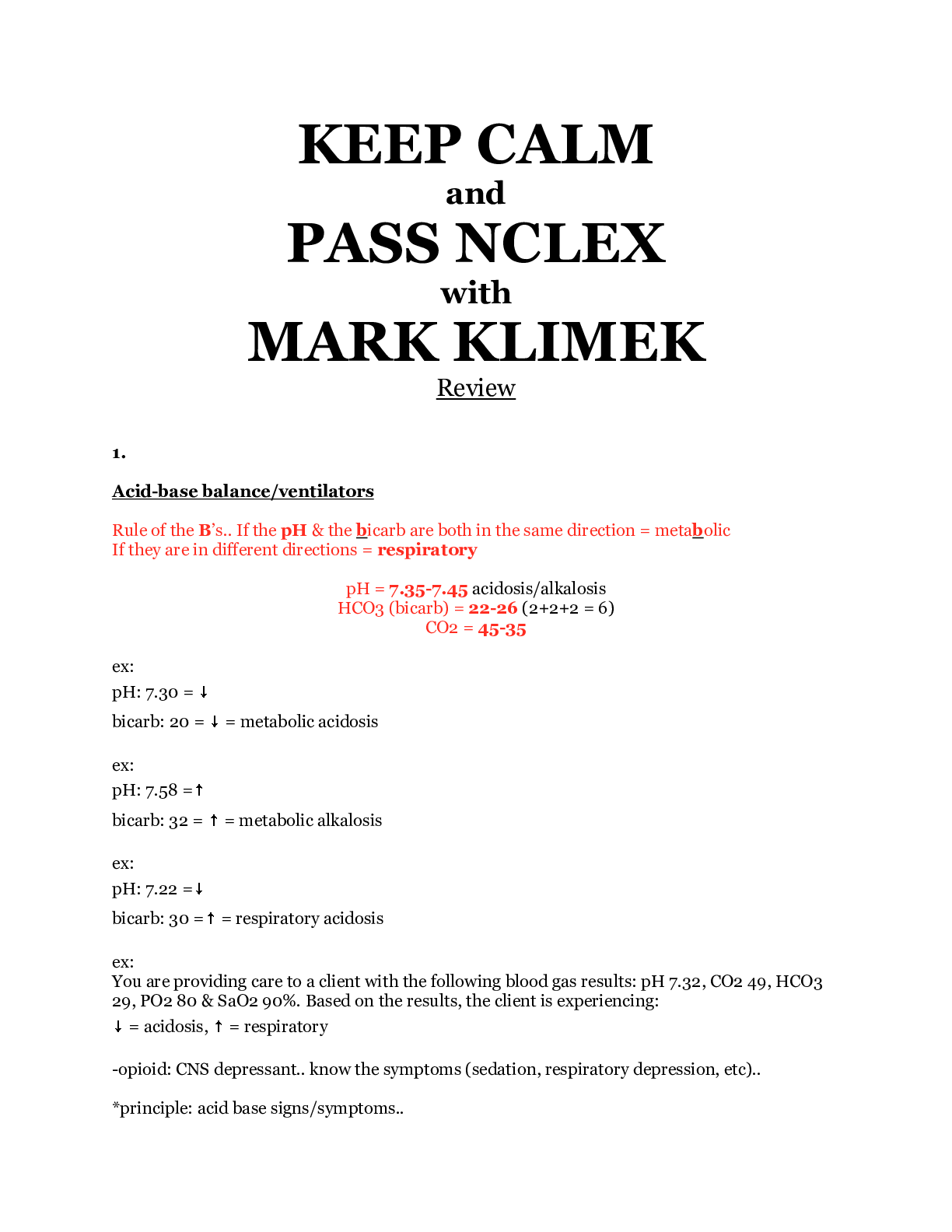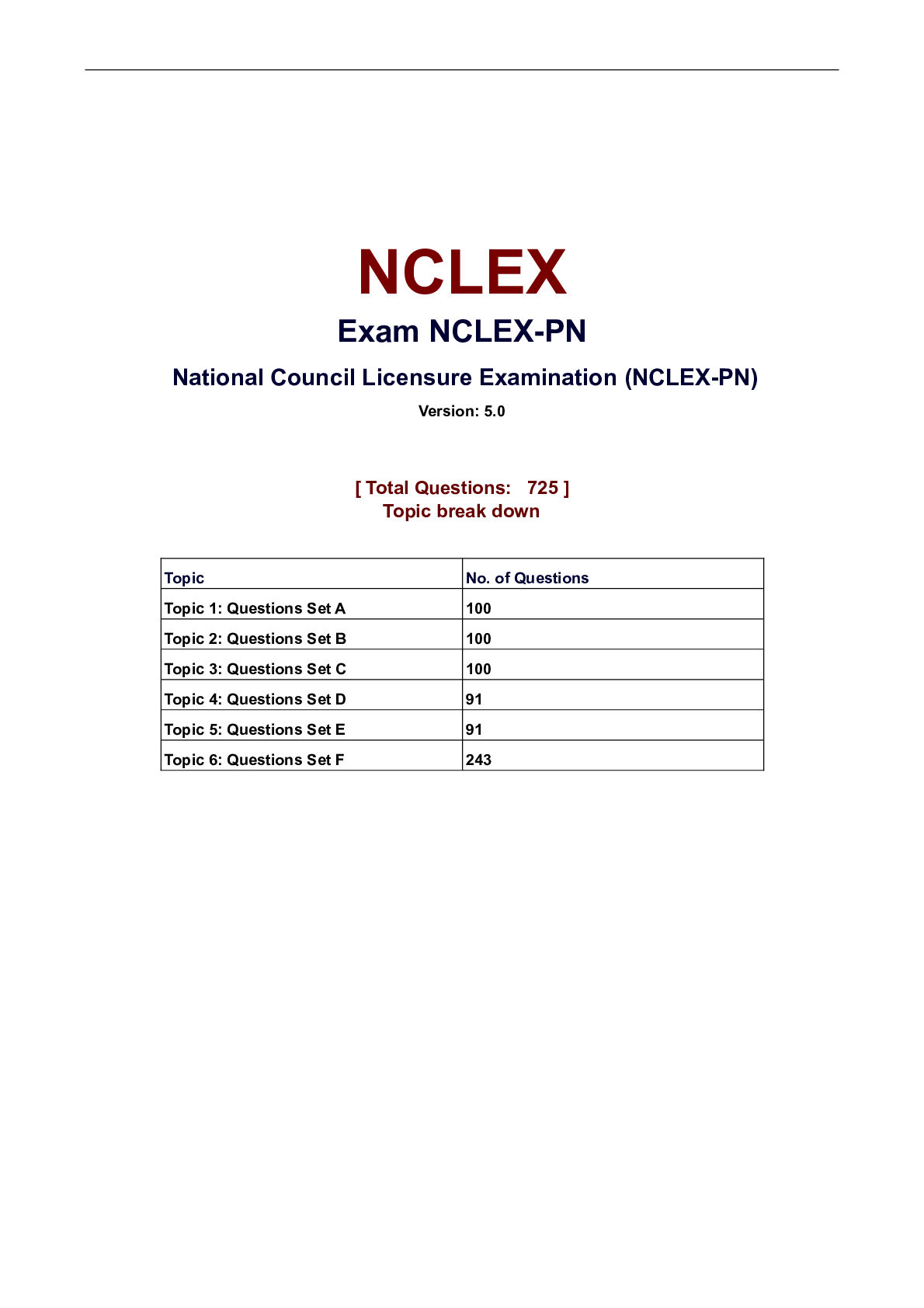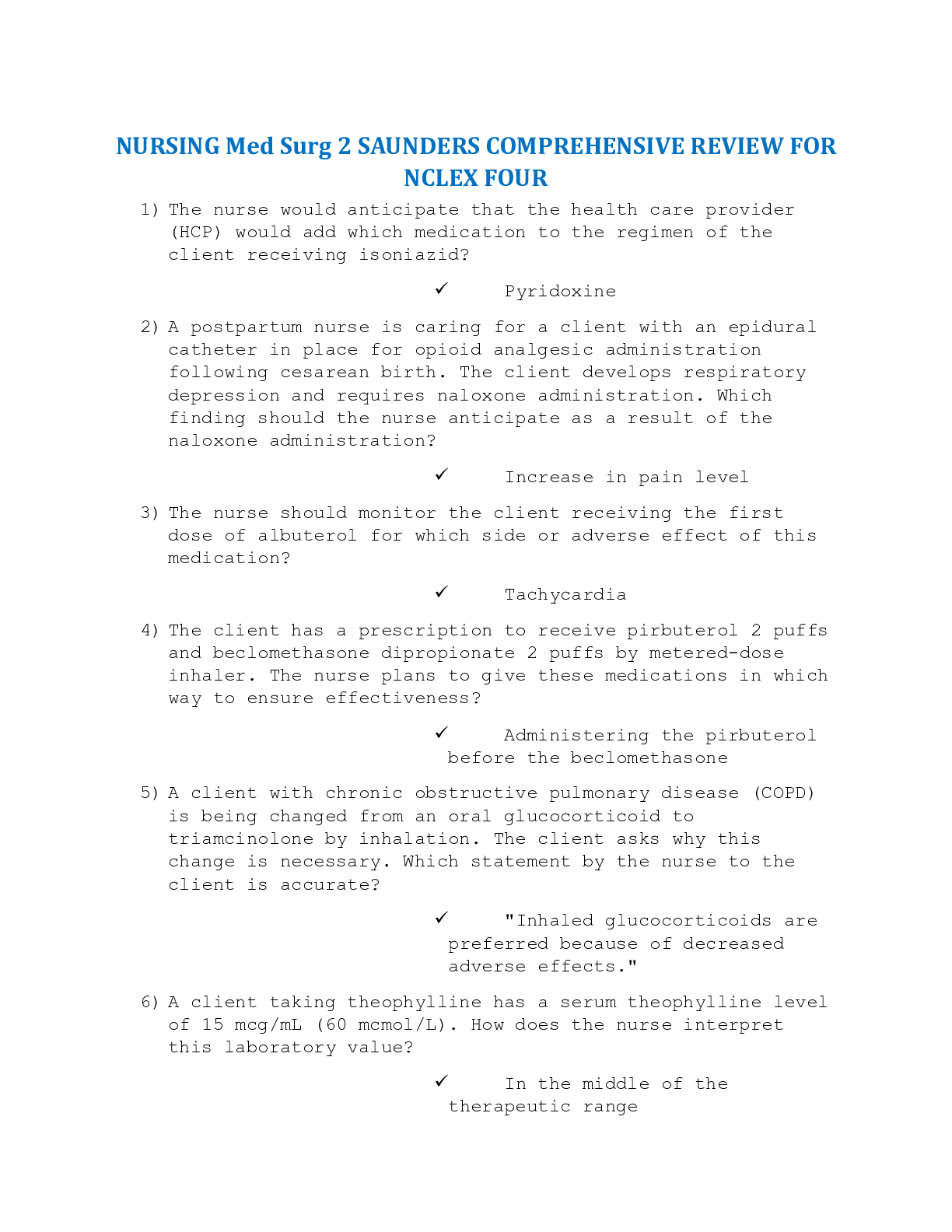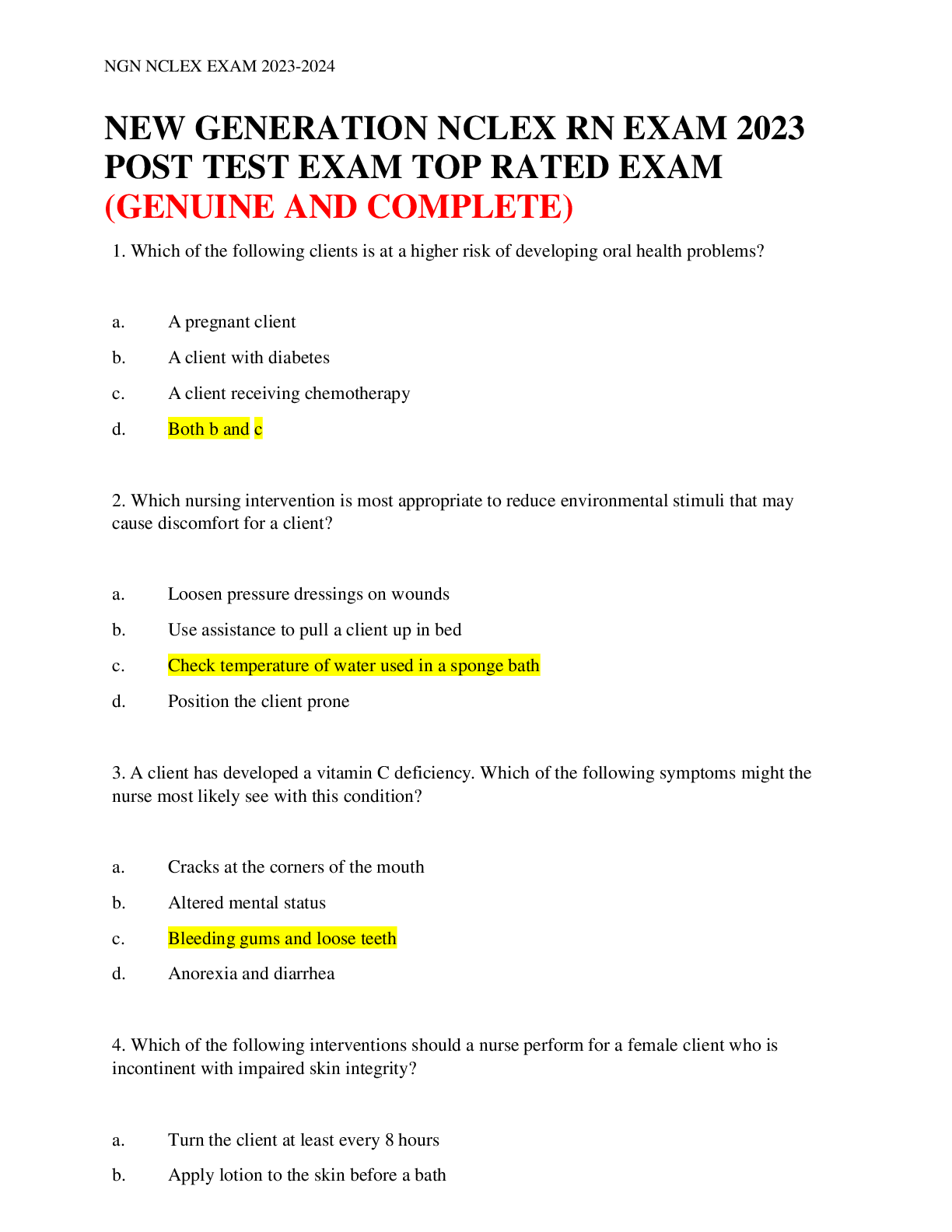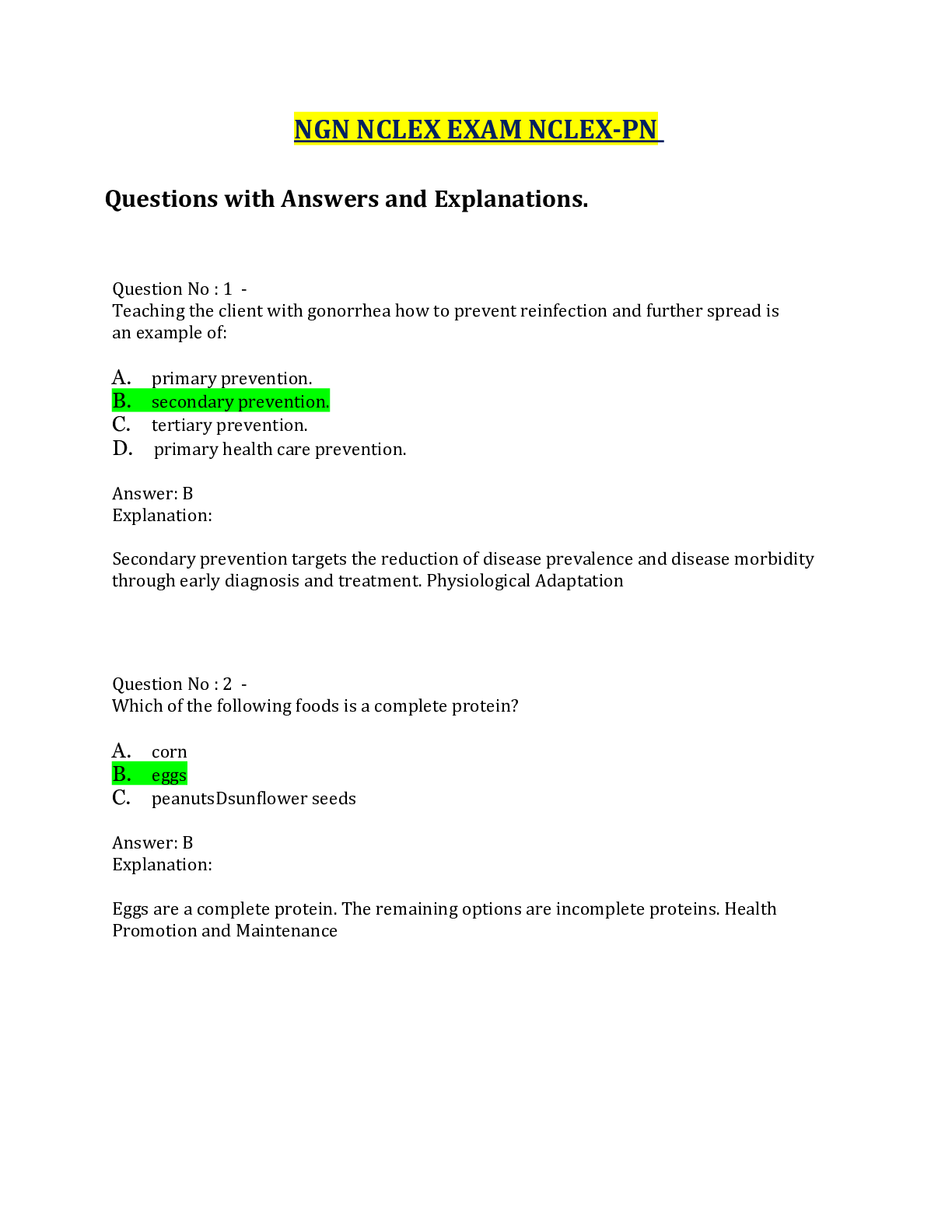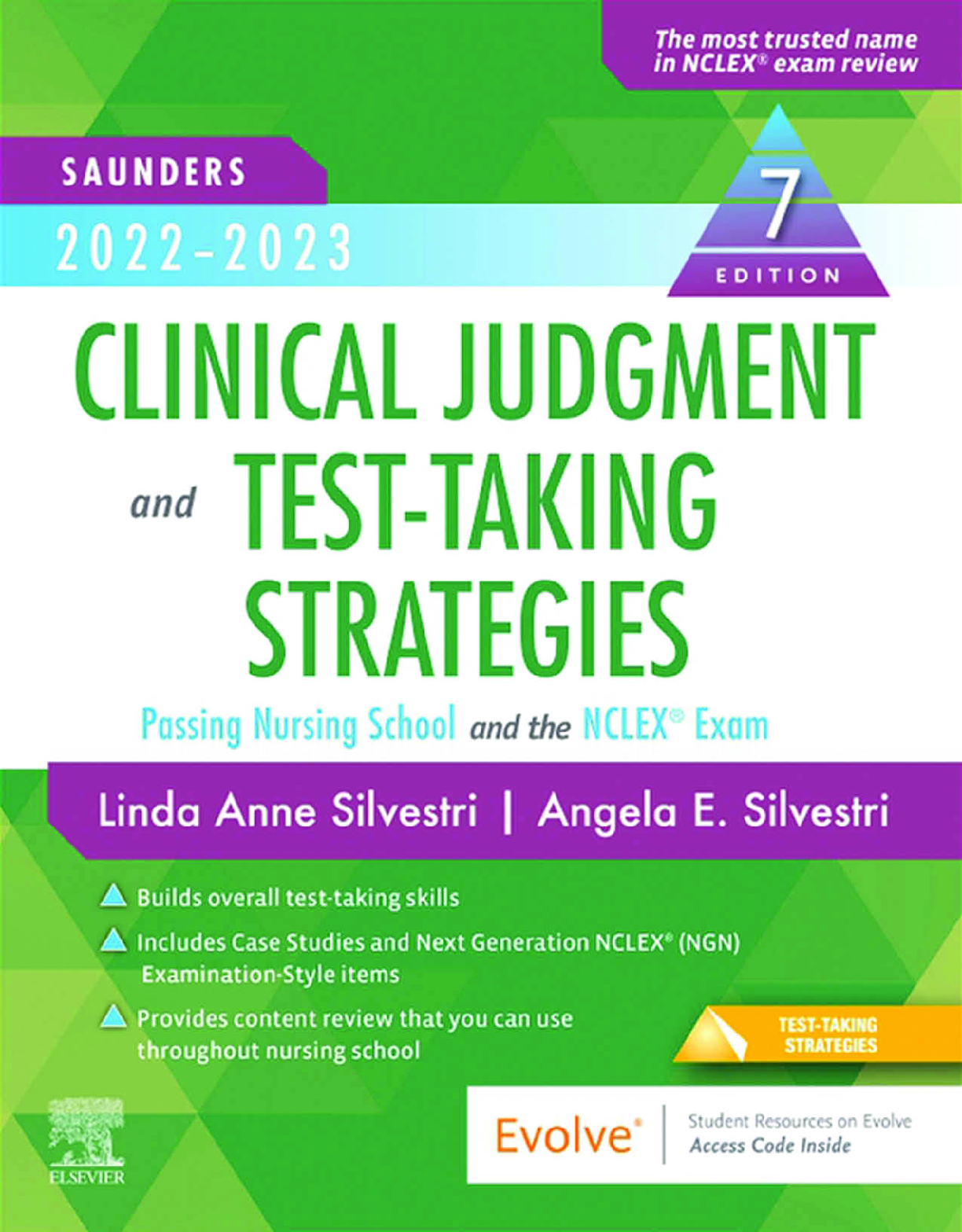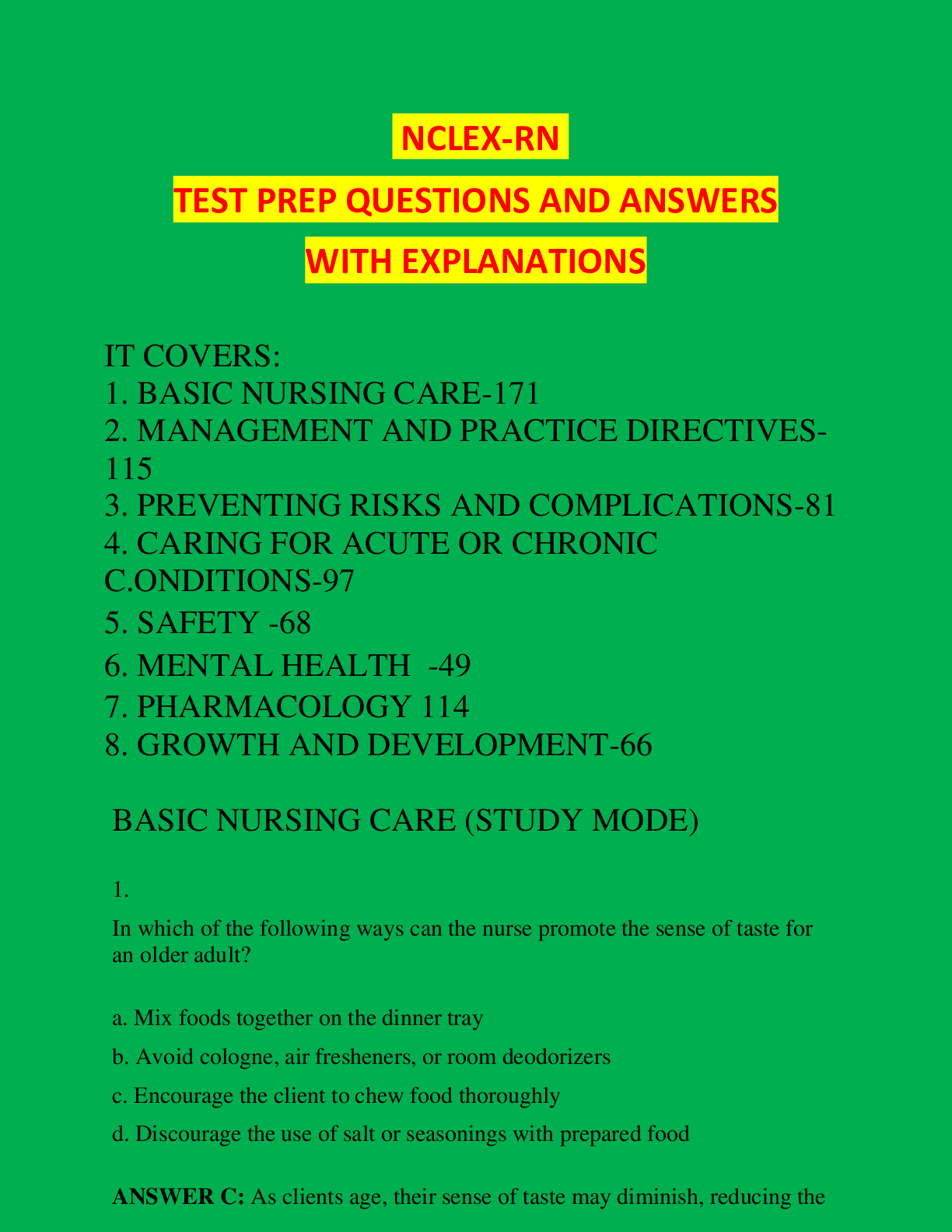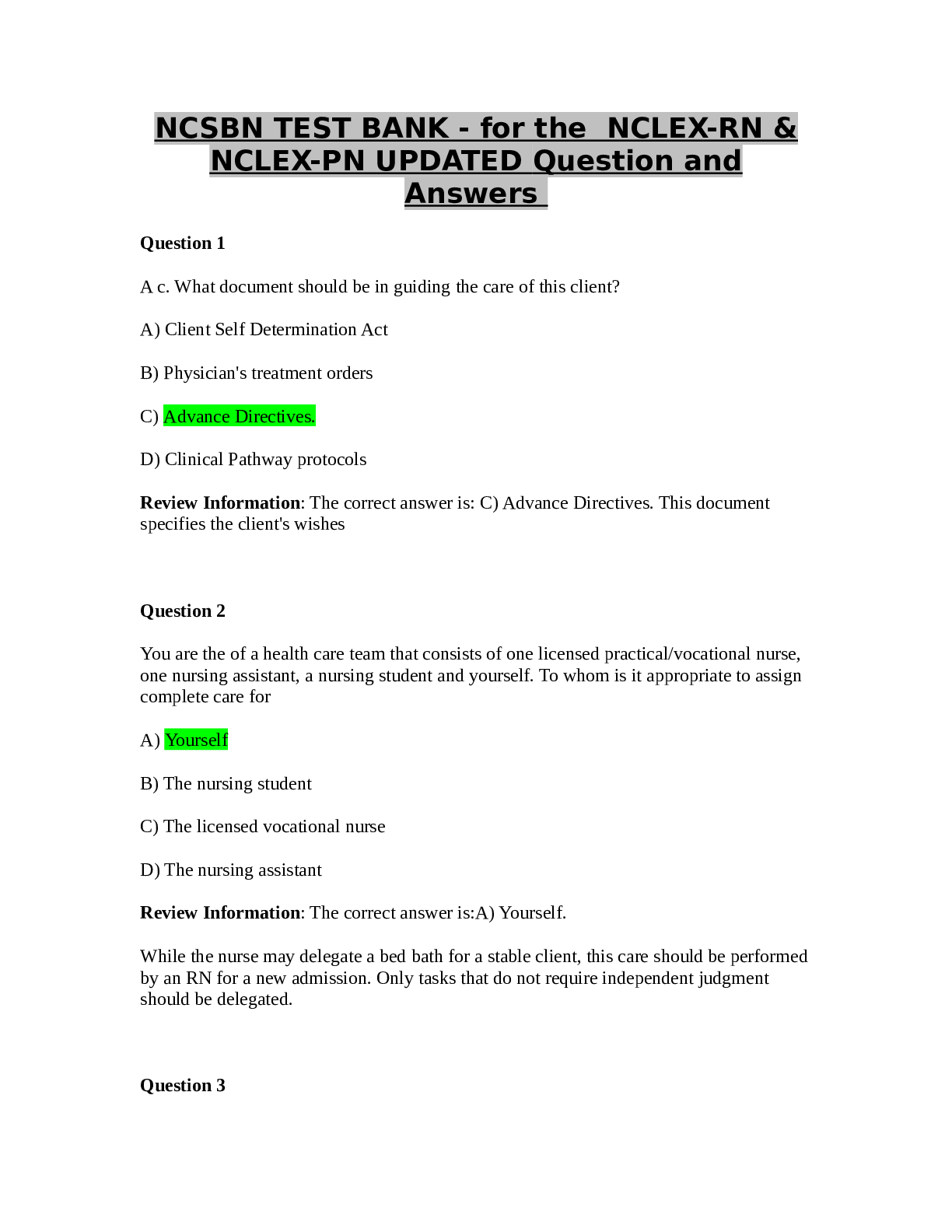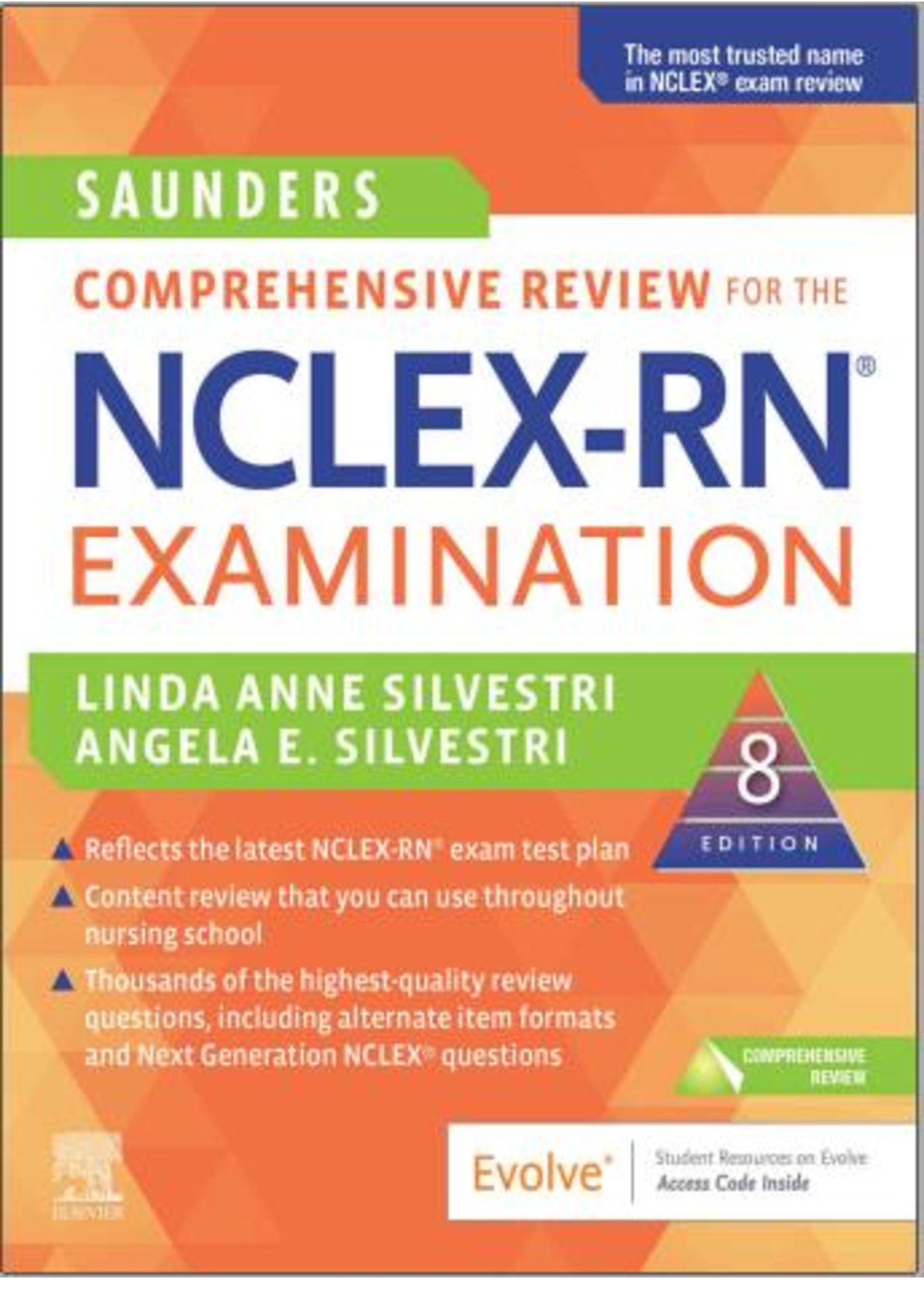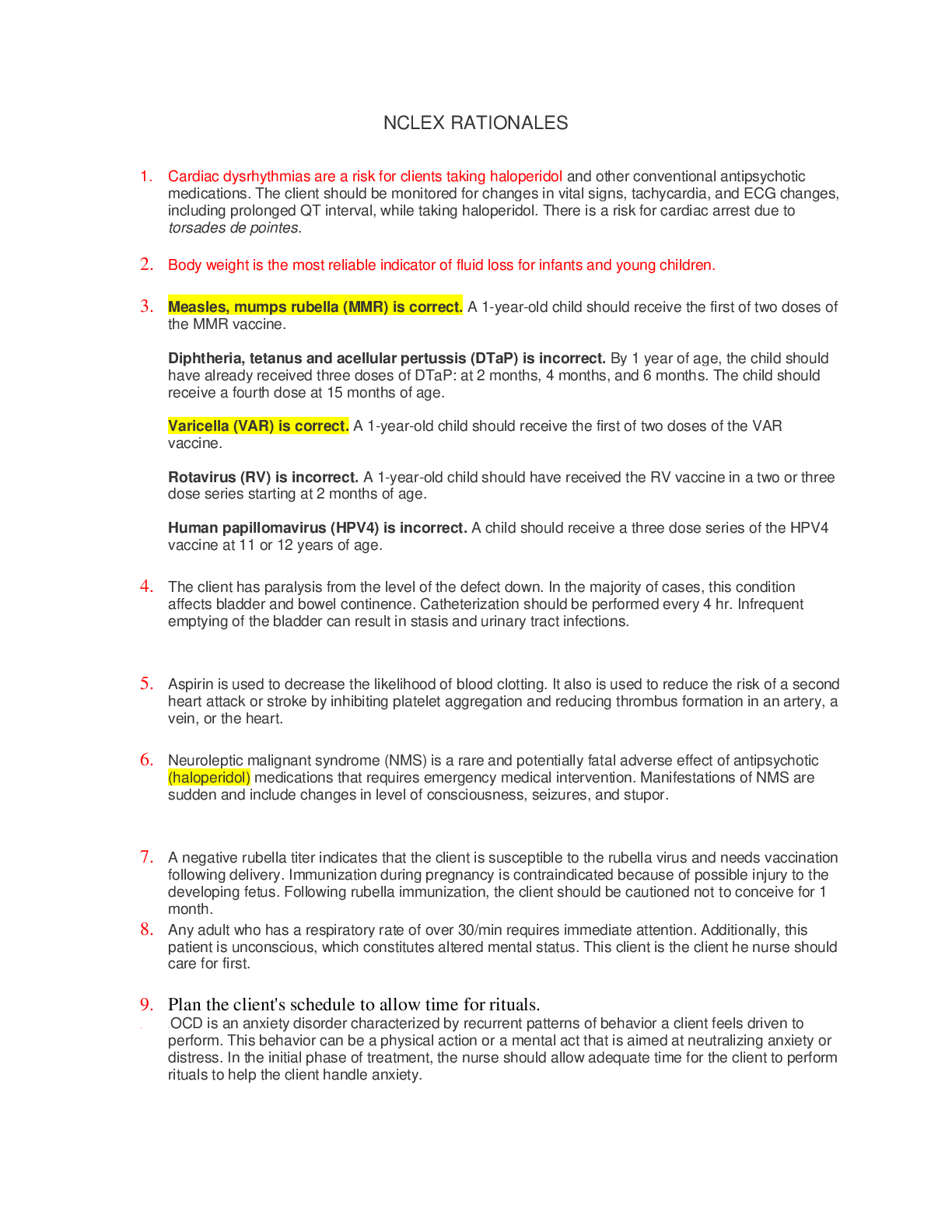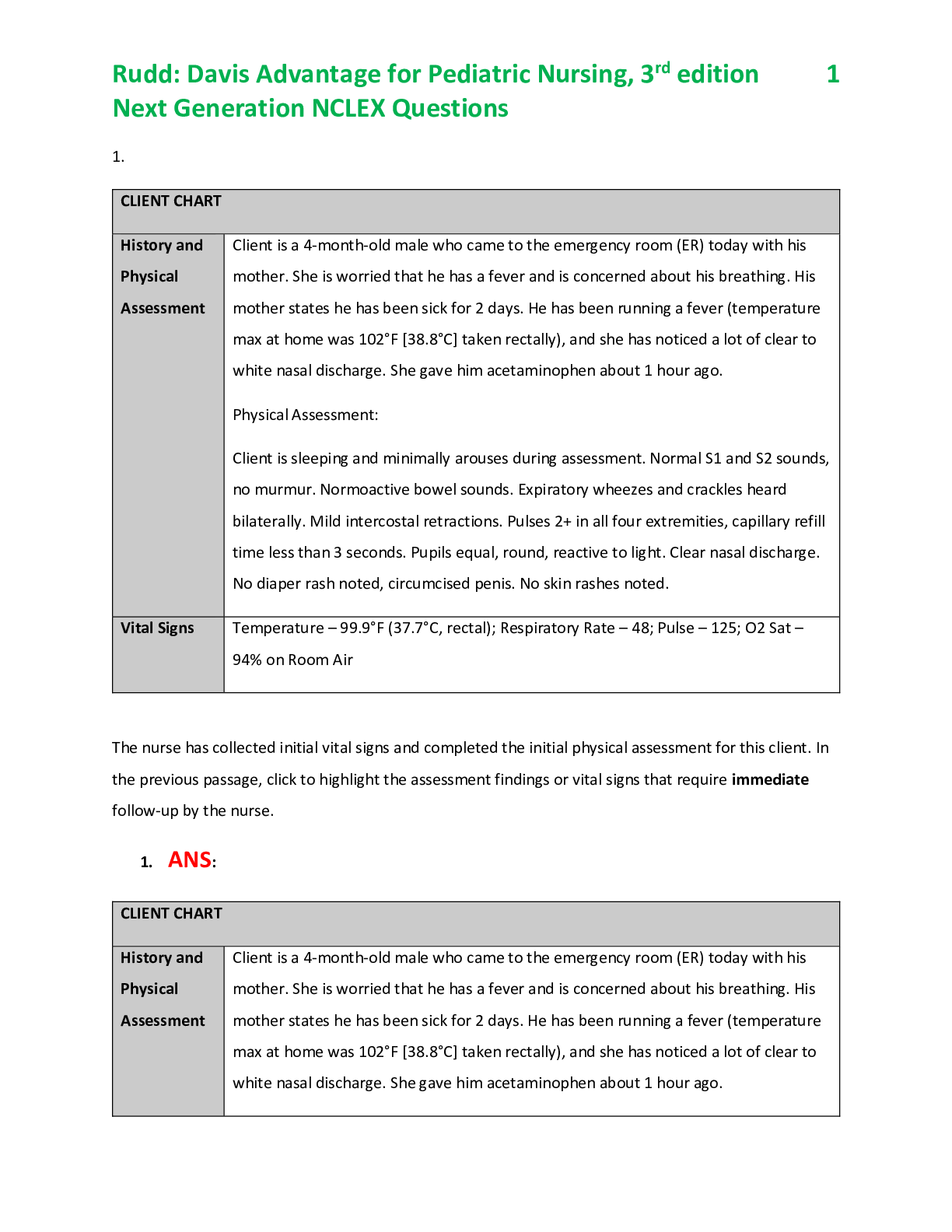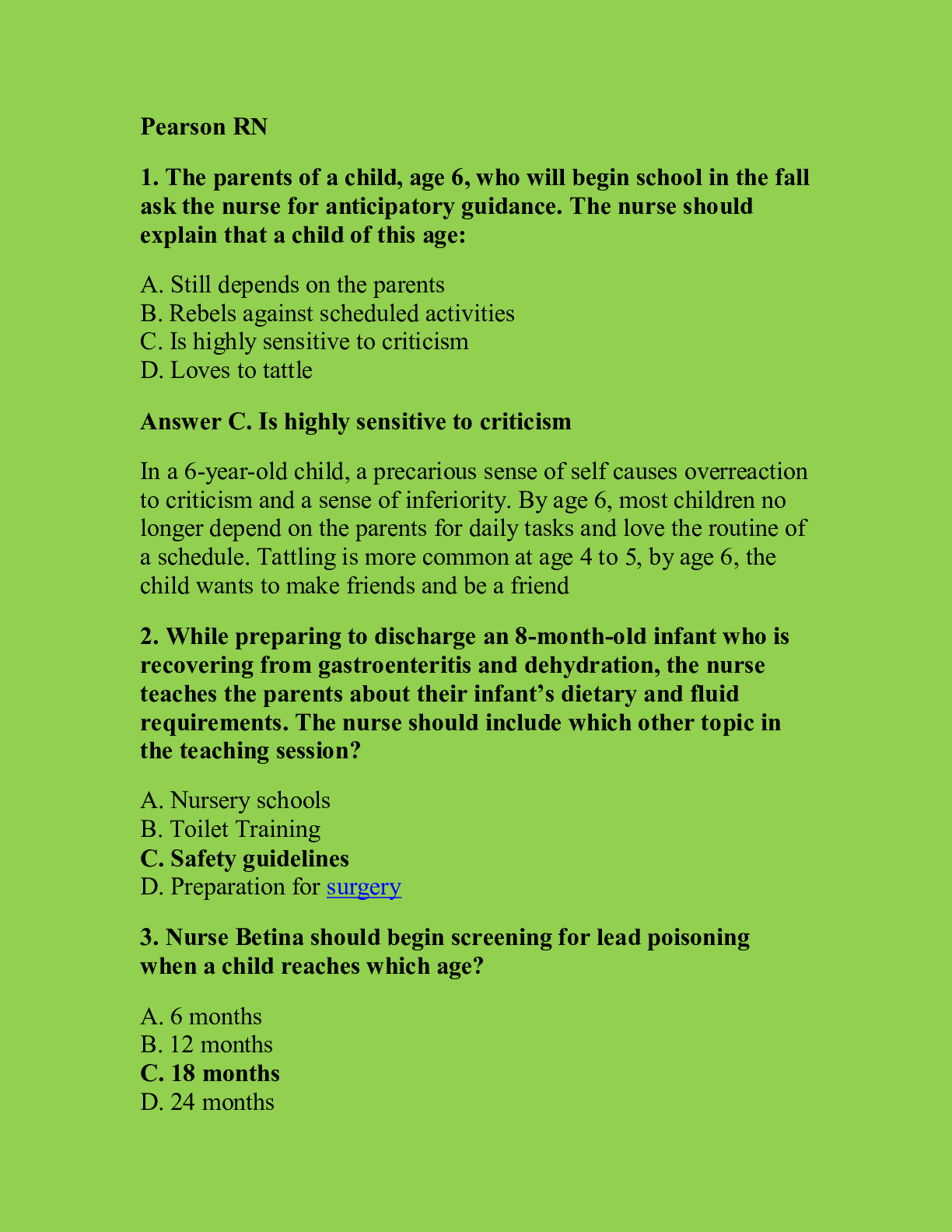Social Psychology > NCLEX > NCLEX LPN Psychosocial Integrity 1 - Questions, Answers and Explanations (All)
NCLEX LPN Psychosocial Integrity 1 - Questions, Answers and Explanations
Document Content and Description Below
NCLEX LPN Psychosocial Integrity 1 - Questions, Answers and Explanations A client with a diagnosis of severe anxiety does not eat sufficiently and begins to lose weight. Which of these approaches by t... he LPN/LVN is BEST for this client? 1. Serve the client's meals on a tray in client's room. 2. Sit with the client during mealtime and encourage eating. 3. Give the client high-calorie foods and drinks to carry. 4. Set limits on the client's activities in the dining room. (1) don't isolate the client (2) CORRECT—provide pleasant surroundings and companionship during meals; offer more frequent feeding and favorite foods because of decreased appetite (3) appropriate action for manic client (4) may be required if client is manic and is manipulative A client who has been drinking heavily for the past five years is admitted to the hospital in alcohol withdrawal. The LPN/LVN should observe for which of the following symptoms? 1. Yawning, lacrimation, muscle cramps. 2. Memory loss, drowsiness, diminished reflexes. 3. Ataxia, nystagmus, postural hypotension. 4. Increased pulse, tremors, anxiety. (1) symptoms of narcotic withdrawal (2) symptoms of potential alcohol intoxication (3) ataxia and bradycardia could indicate alcohol intoxication (4) CORRECT—symptoms occur in a client physiologically dependent on alcohol; abrupt withdrawal causes tremors, insomnia, anorexia, and alcoholic hallucinations; nursing care includes administering sedation, monitoring vital signs, seizure precautions; provide quiet, well-lighted room, don't leave hallucinating, confused client alone When intervening with a client who is in a state of crisis, which of the following statements by the LPN/LVN is MOST appropriate? 1. "Why do you feel so upset in this situation?" 2. "What have you done in the past when you felt this anxious?" 3. "There was no way to prevent this from happening." 4. "It seems as if this situation is very stressful for you." (1) "why" questions imply disapproval (2) CORRECT—helps the client utilize past experience to resolve or reduce current problems (3) LPN/LVN has no evidence to support this conclusion (4) reflective statement; during a crisis situation, more important to determine coping methods used in past The LPN/LVN works on an acute care psychiatric unit. The LPN/LVN understands that in a psychiatric inpatient setting, milieu therapy is BEST understood as which of the following? 1. Milieu therapy provides a therapeutic physical and social environment. 2. Milieu therapy manipulates the environment so the client feels at home. 3. Milieu therapy establishes therapeutic communication with numerous staff members. 4. Milieu therapy sets limits on behavior. (1) CORRECT—milieu therapy provides a therapeutic social, cultural, and physical environment in which all aspects are utilized as instruments of growth to the client's benefit (2) want to establish environment in which client feels safe and is able to work through issues (3) not the purpose of milieu therapy (4) not the purpose of milieu therapy The LPN cares for a client just admitted with a diagnosis of an obsessive-compulsive disorder. The client usually performs 100 sit-ups, along with 30 minutes of aerobic exercise after eating. Because the LPN/LVN needs to administer medications and treat an open wound immediately after the client's meal, which of the following nursing actions is MOST appropriate? 1. Remind the client about the routine unit policies. 2. Explain that performing the activities on time is more important than an exercise routine. 3. Interrupt the client's routine activities, administer the medication, and treat the open wound. 4. Reschedule the medication administration and wound treatment. (1) enforcing unit policies could increase client's anxiety level if performance of the ritual is interrupted; obsession is repetitive, uncontrollable thoughts, compulsion is repetitive, uncontrollable acts; accept ritualistic behavior (2) medications likely to be more effective if anxiety-lowering ritual is not interrupted (3) purpose of therapeutic environment is to lower anxiety; interrupting ritual can substantially increase anxiety [Show More]
Last updated: 9 months ago
Preview 1 out of 16 pages
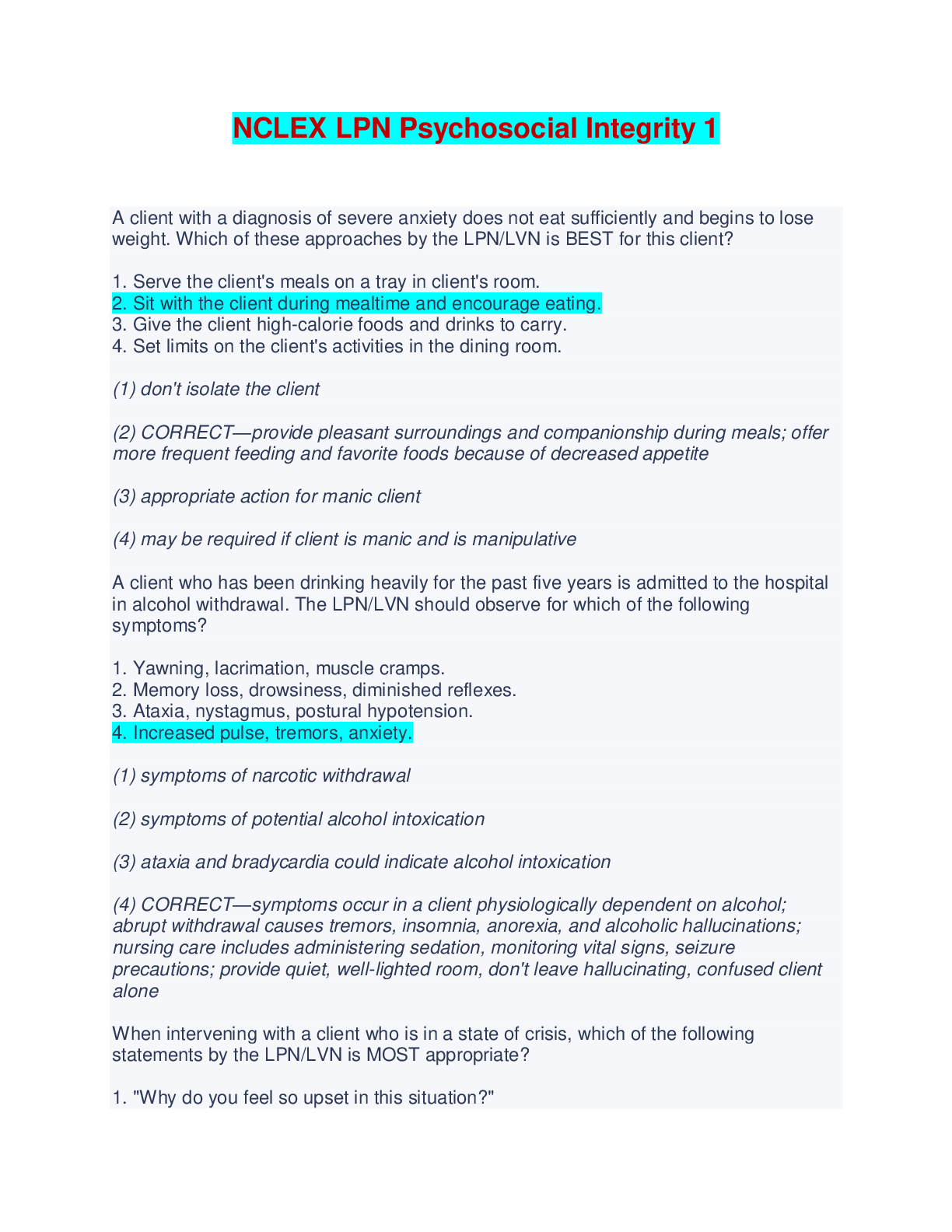
Also available in bundle (1)

NCLEX LPN PSYCHOSOCIAL INTEGRITY 1-4 BUNDLE
NCLEX LPN PSYCHOSOCIAL INTEGRITY 1-4 BUNDLE
By Nurse Henny 9 months ago
$30
4
Reviews( 0 )
Document information
Connected school, study & course
About the document
Uploaded On
Jul 20, 2023
Number of pages
16
Written in
Additional information
This document has been written for:
Uploaded
Jul 20, 2023
Downloads
0
Views
28

